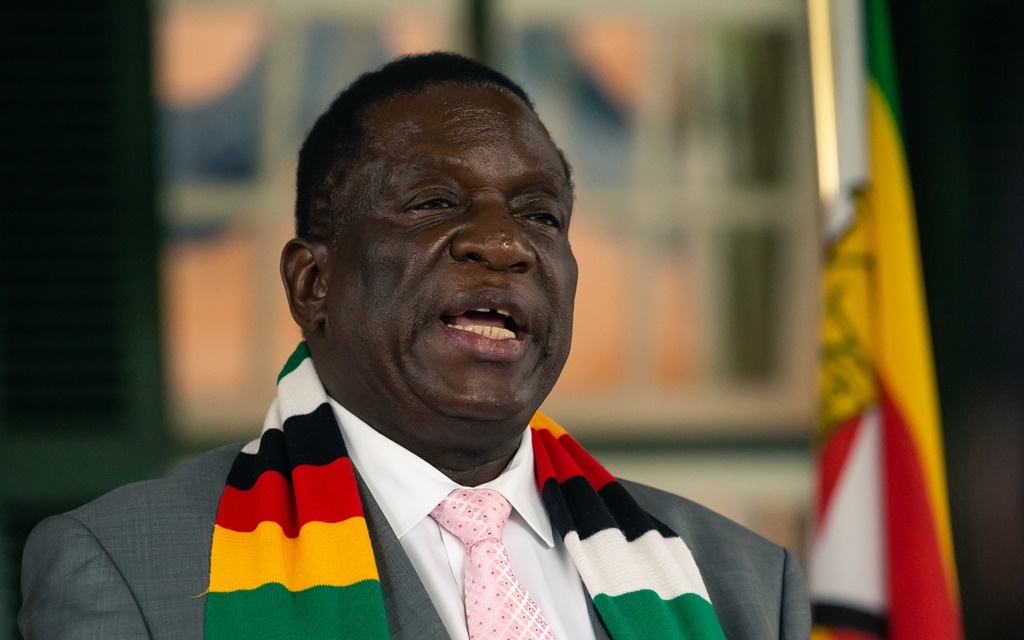
- The Reserve Bank of Zimbabwe on Tuesday lifted the the lending freeze imposed just over a week ago
- The Zimbabwe Stock Exchange dropped over 21% since new measures
- The Zimbabwe dollar tumbled by 33% on Tuesday as the central bank which runs the official foreign currency auction system rejected bids that were deemed too low
The Reserve Bank of Zimbabwe on Tuesday lifted the the lending freeze imposed just over a week ago, saying its Financial Intelligence Unit (FIU) completed investigations.
President Emmerson Mnangagwa announced the lending ban on May 9, in a move he said was motivated by the need to defend the local currency from manipulators and market indiscipline.
Finance Minister Mthuli Ncube said the move to suspended lending was driven by the need to "prick the bubble" that was building up in the foreign exchange market as well as on the equities market.
This was at a time the Zimbabwe dollar had lost 53.33% of its value on the parallel market and 37.5% on the official market since the beginning of the year.
The Zimbabwe dollar opened the year trading at Z$210 per US$1 on the parallel market but is now trading at Z$450.
Officially it started the year trading at Z$108 to the US dollar but was now trading at Z$173, before the decision to "prick the bubble" through suspending lending among other measures.
In supporting the move to suspend lending, central bank governor Dr John Mangudya said this was meant to protect the local currency from continued depreciation.
"We know this is a painful, but necessary, measure. It was necessary because of the increase in inflation. Some entities were now using funds from banks to purchase foreign currency," Mangudya told state media in a live interview.
Zimbabwe annual inflation reached 96.4% at the last count in April 2022.
But less than two weeks on, the widely condemned suspension on lending has been lifted.
In a statement released on Tuesday, the RBZ said "the temporary suspension of lending services by banks has been lifted with immediate effect."
However, the lift has not been extended to entities believed to have been borrowing to speculate on the currency.
The RBZ said the FIU is looking into companies that have been misusing loan facilities given to them by banks.
Confederation of Zimbabwe Industry president Kurai Matsheza told state media that "The ban had left industry dejected and with a fresh headache on where to find funding from within its operations".
Business groups had warned that the lending freeze would hurt commerce and worsen Zimbabwe’s economic crisis.
Zim dollar tumbles
Meanwhile the Zimbabwe dollar tumbled by 33% on Tuesday as the central bank which runs the official foreign currency auction system rejected bids that were deemed too low.
While submitted bids amounted to US$52 million, the central bank only allotted US$6.8 million.
As a result, the exchange rate moved from Z$173 per US dollar to Z$258, a 33% drop.
The auction system has been a source of cheap currency with the premium between the official exchange rate and the widely used parallel market exchange rate averaging 100%.
Pricking the stock market
Meanwhile the Zimbabwe Stock Exchange which was valued at Z$3.3 trillion just before the announcement has lost more Z$700 billion of its value closing at Z$2.6 trillion on Tuesday.
Finance Minister Ncube had said the lending ban was also meant to prick the stock market bubble which he accused to be another "playing ground" for currency manipulators.
"What we are trying to do is to prick the speculative bubble which has emerged in the forex market as well as in the equity market.
"What we have found out, we have information and we know some of the perpetrators, they were using banks to borrow cheap liquidity, cheap in the sense of negative real interest rates to then speculate, take positions on the parallel market but also then route some of the proceeds onto the equity market and then keep playing around, between the equity market and the parallel market and so forth," Ncube told state broadcaster Zimpapers Television Network last week.
"So we had to prick that bubble and this is how we decided to do it."




 Publications
Publications
 Partners
Partners












